
Muse & Mastery
Hosted by Aliya Cheyanne, Muse & Mastery is a digital sanctuary for creative thinkers, makers, and seekers. Each episode explores how we can live, create, and evolve in alignment with our purpose.
Muse & Mastery
Healing Ourselves, Healing Our Communities with Salenna Green | Ep. 86
When Salenna Green found herself struggling to climb a flight of stairs without stopping to catch her breath during college, she knew something needed to change. That moment marked a turning point in her relationship with herself—one that would eventually lead to creating a business, podcast, and community devoted to self-love and healing.
In this soul-nourishing conversation, Salenna shares her journey from constantly prioritizing achievement over wellbeing to embracing all aspects of her multifaceted identity. As host of The Hot Girls Healing Podcast and founder of a special purpose corporation dedicated to promoting self-love, Selena challenges the false dichotomy that we must choose between caring for ourselves and caring for our communities.
Whether you're questioning your own limiting beliefs, seeking balance between community care and self-care, or simply needing permission to honor all parts of yourself, this episode offers wisdom that will resonate long after you finish listening. Join us for an authentic exploration of what it means to heal while still embracing joy, creativity, and connection.
Watch this episode on YouTube!
Check out my guest episode with Salenna on The Hot Girls Healing Podcast: The Journey Never Ends
More from Salenna:
- Listen to The Hot Girls Healing Podcast
- Follow Salenna and the pod on Instagram and TikTok @hotgirlshealingpodcast
- Connect with Salenna on LinkedIn
- Visit salennagreen.com for more!
Theme Music:
She No Dull Beat by Nana Kwabena
Festivities in Belize by RAGE Productions
Enjoy the episode?
- Share it with friends!
- Send a voice note or text!
- Rate & review the podcast!
Follow @museandmasterypod on your favorite SM platforms!
Watch full interviews here on YouTube!
Join me over on Substack!
Check out my favorite brands and snag a discount!
Grab a guided journal here!
Are you a creative, solopreneur or entrepreneur who’d like to be featured on Muse & Mastery? Let me know here!
Hosted by Buzzsprout. See the Buzzsprout - Privacy Policy here.
Hi everyone, welcome back to the show. I'm your host, aaliyah Cheyenne, and I'm so excited today to have Selena Green on the show. Hi, selena, welcome to the show.
Salenna Green:Thank you for having me, yes.
Aliya Cheyanne:I'm super excited. So Selena and I are doing an episode swap. Selena is the host of the Hot Girls Healing podcast and I'm so excited to have her on this show and I'm excited to have been a guest on her show. So we're here now and we're doing it. So before we jump in, I just want to give the audience a little tidbit about how we connected.
Aliya Cheyanne:So Selena and I host our podcast on the same platform and we actually connected in like an online community group that the platform has and agreed that we were a really cool fit for each other for our shows and it's really nice, especially in the podcasting space, to make connections that way, whether it be through conferences or online platforms and like meet incredible people who have incredible platforms, who are really talking about important things. So I'm so excited to be doing this a lot. But before we jump into our interviews for today, our conversation, I would love to kick it over to you, selena, to tell folks a little bit more about you, who you are in the world today and how you'd like to be known.
Salenna Green:Thank you so much. I actually really appreciate what you said really quick before I introduce myself, about being able to find each other in the podcasting community, because it is vast. There are a lot of different kind of podcasts out there, so to find a thread like that little golden thread that connects you with another podcast that is like you, oh, I do not take it for granted that we know each other in this space now. I do not take it for granted that we know each other in this space now, and I'm really really excited and grateful that we have done this episode swap, because that also does not always happen. But thank you so much for having me everybody.
Salenna Green:My name is Selena Green. I am the host of the Hot Girls Healing Podcast, but I'm also an artist, I'm a community organizer, I'm an entrepreneur, I'm a business owner. So I do a lot. I do a lot of things and you likely, if you get out in the Seattle area, you will see me at some of these events not all of them child, because I'd be tired to. One thing I do is take a nap as well. So, amen, I like to keep my life balanced and fruitful.
Aliya Cheyanne:That's beautiful and that's amazing. You mentioned so many things in that introduction, thank you. So, artist organizer, creative healer, all of these incredible things that are so important, and I would love to talk a little bit more about just the gifts that you share with the world, because those titles in and of themselves are gifts, but I'm very curious about how that shows up to you in your community organizing work, how that shows up to you as a creative and an artist. I would love to hear more about the gifts you have and how you share them with the world.
Salenna Green:I love this question. So, being that I am a multifaceted person, and I actually always have been, but in the past I would try to just like choose one of the things. I have, like this mastery mindset, and I really just wanted to be amazing at one thing and be like the PhD. You know, whatever that thing was, I actually planned to go to school and get a PhD. So, as I'm, you know, exploring things, I go to art school, I go to college and graduate, I get my bachelor's in community psychology, and so there's always this community thing in my life. And once I graduated and I entered the workforce, I'm in the nonprofit sector. So art was like on the back burner. I was being practical. It was about approaching my community and, you know, really trying to solve some of the systemic issues that had had personal effects in my life things like the war on drugs, things like poverty, things like lack of resources sometimes or a parent who was able to navigate resources. So all of these things were happening. All of these things were informing my choices, about what was possible for my future. If you asked me what I was going to be doing when I was 12, I was about to be dancing for the rest of my life, dancing, singing on stage, performing. And by the time I was filling out college applications, I was like, okay, so psychology obviously right, because what is actually happening and why? And so it was actually about being practical, making money, figuring some stuff out. And by the time I graduated I was still in that space of hustle of produce, produce, produce, achieve, make it happen. And that lasted for a while as well.
Salenna Green:But somewhere in that grind I started to not be okay. I started to physically not feel well. I was neglecting my health to just focus on my studies. Feel well, I was neglecting my health to just focus on my studies. But you know, you get to a point where you're neglecting yourself for this, for that, for the other. They're all really great reasons, they all seem so much more important at the time. But my body got to a point, as the body does, where it is no longer accepting not being a priority. And so I got to the point where I was, you know, at school, going to my college course, but having to pause like six times on this way up the stairs because I'm losing my breath and I feel like I'm going to pass out. And it actually took me a while to be like I should go to the doctors, like that's, that's how focused I was on the next assignment. Like I was like, oh right, this is actually not normal, I'm a pretty fit person, like I should be able to get up the stairs without having to take a break. So I ended up having to reprioritize and I still was able to graduate college, but I was no longer on the deans and presidents list like I was when I started and I left out very different than I went in.
Salenna Green:And so my healing journey became more important to me and through healing I was really just trying to figure out what was wrong with me. Once I got to a certain point of reflection and really dialogue with myself, my highest self, my inner child, my inner teenager, I figured some things out in me and I'm like, oh, I'm not broken, I'm not sad, I'm not these things that I had unconsciously internalized, like, look on the outside, I'm fabulous, I'm cute, I'm having fun, I'm achieving right, I'm doing the things. But then I'm also sad and I'm dysregulated and I'm you know. So I was having to reconcile these two things. How am I doing the thing? But I'm also not happy. How is this possible? And the psychology degree was not helping me figure it out the way that I thought it was going to. So it really was this journey of deep, reflective healing through community work.
Salenna Green:At the same time that I'm developing holistic healing programming for my community, I'm also going to therapy, I'm journaling, I'm meditating, I'm crying a lot. I've got to the point where I'm telling people my healing costs a lot of tears, because your girl was crying about everything for a while. It was a drop of a hat, a pin needle, and I'm crying and it was really just allowing myself to cry. I went from not feeling any emotion that I felt like was just dissatisfying.
Salenna Green:If it was an emotion that I didn't want to feel, I just didn't Compartment to feel, then it's like you have to have some intelligence around, that you have to be able to deal with your own emotions, and I couldn't. So it was a long process. I've told you the long version short version is I try to do all of the things that I can do and I try to have a growth mindset now, because it took me so long to get to where I am now that I want to let all of the sides of me shine. I want you to see the business owner, I want you to see the healer, I want you to see the artist, and I want to celebrate my journey, not only where I've come, but where I have to go as well, because it's not over.
Aliya Cheyanne:Yeah, that's really powerful. I know there's so much there.
Aliya Cheyanne:I know one of the things we connected on early was just our passion around the nonprofit sector and the impactful work that that sector does when it comes to systemic oppression, recognizing that we live in a society that probably wouldn't need so many doing all these things if there weren't so many systemic problems in the first place that were structurally made and put in place.
Aliya Cheyanne:But it's so interesting to me to hear you speak about your experience and your health, like the impacts on health that you were feeling while you were going through school and your day-to-day, because there are so many Black women in particular, black women and femmes in particular, who everyday stresses, everyday microaggressions, all of these emotions and things that we bottle up and feel and suppress can lead to autoimmune conditions, like so many studies are finding that now, and how important it is for us to take a step back to actually listen to our bodies and rest when we need to. I know medical racism exists, but advocate for ourselves when we do go to the doctor and we're explaining what experiences we're having and what's going on.
Aliya Cheyanne:I literally just read a post on LinkedIn this morning of like a 45-year-old woman who was advocating for herself to get like a colonoscopy, but the doctors were telling her she doesn't need it because she's not 50 yet. But she felt like she needed it because colon cancer runs in her family and she was adamant and vocal about getting checked early. And when they finally gave in and did it, despite the fact that her insurance told her she was too young, despite the fact that multiple doctors kept telling her no, they found multiple precancerous polyps on her colon. And they wouldn't have found that had she not advocated for herself and listened to her own body, even when these doctors were telling her no. And that comes up too.
Aliya Cheyanne:So much when it comes to our health and our healing learning how to advocate for ourselves and listen to ourselves and be vocal about our needs and what healing learning how to advocate for ourselves and listen to ourselves and be vocal about our needs and what we're feeling.
Aliya Cheyanne:So, hearing you share your story and your example of your health challenges and experiences that you were feeling, and even though it might have taken you a while to go, get it checked out and go inward and look for the medical support, look for the internal support to take care of yourself. You did it and now you're in a much better space for having done so, which is a really beautiful thing. And even going back to your community psychology degree and this, this sense of community, community, community, like it looks different for everyone and I know that, like in your organizing work, in the workshops that you facilitate around self-love, the energy you pour into your podcast, like all of these are expressions of how you pour into community, which is so beautiful. So I would love to hear a little bit more about you as the business owner, because some folks listening might not know that hat.
Aliya Cheyanne:They might not know that about you and then you know, after sharing about that. I would love to also hear a little bit more about how you kind of take off the hat of the facilitator and building on those rituals and routines that you do to take care of yourself, that you've put in place to support yourself and your health, and all those things.
Salenna Green:Yeah, for whatever reason, the business side is where I'm very comfortable. Health and all those things yeah, for whatever reason, the business side is where I'm very comfortable. My ancestors were business owners and entrepreneurs and people who made it happen for themselves. It's just that hustle is in me. I don't got to fight that. I often lean into the hustle. It is a place where I bring together my care for community and that little spirit of hustle. I bring them together and I'm like okay, what can I do? How can I move in a way that is going to benefit my community? And I know that feels like small, probably, but that's actually a very big statement in my opinion. Because imagine if we all thought that way, imagine if we all thought what can I do that's going to benefit all of us. And that's part of what I want to do through my business is help change minds, help change the way we think as a community, because community psychology is about not only the community, obviously, but how the health of the community, the way the community is thinking and moving, affects each individual right, because if I'm okay, but I'm the only one in my community, that's okay. Am I really okay? No, I'm not, of course not, because we're all connected.
Salenna Green:So, when it comes to business, for me, my business is a special purpose corporation. When it comes to business, for me, my business is a special purpose corporation. So I have a for-profit business that is not tied to making money, which, like you know, ask my accountants like they like yeah, we know Like the point of my business is to promote this special purpose, and the special purpose is self-love and relationship healing, right? So why self-love? Well, self-love is why I have a business. Self-love will have you starting businesses. Self-love will have you giving yourself your best chance to succeed. Self-love will have you being your own coach. When you fail, self-love is going to help you figure out how to get back up. It's not going to chastise you for having failed at all. You know it's about your relationship to yourself and then it's about your relationship to others, because community work was really easy for me. Caring about other people comes naturally to me and I was also raised to do it because I was raised, you know, to be a woman. I was conditioned to be a girl and that is what my understanding of that conditioning was Serve others, make sure other people are taken care of, make sure other people feel comfortable, make sure other people are well, and then maybe think about yourself.
Salenna Green:That way of operating in the community was not sustainable for me, so I actually had to flip it around. I had to rewire my thinking to be like oh, I have to take care of myself first, I have to make sure I'm well, I have to make sure I have what I need, and then I'm going to show up in the community in a way that's so much different. I'm going to show up without resentment, show up in the community in a way that's so much different. I'm going to show up without resentment in my professional business encounters. You're not going to have to worry about my business showing up without our deliverables because I've not agreed to any deliverables that I couldn't deliver. I'm not going to overextend my business. And then I lose the trust of the community because my business is again and again not delivering what I said. I was going to overextend my business. And then people, I lose the trust of the community because my business is again and again not delivering what I said I was going to deliver.
Salenna Green:It's these things business relationships, personal relationships they move in similar ways, and so, when it comes to my business. I'm doing things like workshops around self-love. I'm currently developing something around conflict resolution right, because these are the skills that my business sees are valuable for our community to have. My business does healing related retail items. We have things like self-love journals, where there are prompted questions and space to explore your feelings, space to explore different concepts, different relationships that you have and how those relationships, concepts, beliefs are affecting your life. I have other products that I'm coming out with. There are smaller things bookmarks, just to promote those moments of quiet, those moments of stillness. So everything in my business is about promoting wellness, promoting health in our community through self-love and through relationship healing.
Aliya Cheyanne:That's really rich and that's really powerful. You said a couple of things that really stood out to me just in terms of how we grow up and the conditioning that we grow up with. Like from the moment we come out of the womb, it's the gender reveal parties and the pink or the blue, like you know that kind of stuff. And I think it's really powerful to be in an era where people are kind of deconstructing that and reclaiming their identities for themselves outside of what they've been conditioned to do. But even in speaking about girlhood and womanhood and feminine energy, like it's a very nurturing energy and we are in a lot of ways, conditioned to be nurturers. We are automatically assumed to be, like, community minded and family focused. Like that is that's what we get from little girls, from the moment that the baby doll is put in our hands, from the moment where we're getting, like the kitchen set and, like you know, the easy bake oven and like all of those things. And that's not always the way that the boys are growing up.
Aliya Cheyanne:There's not a lot of space for nuance. Do anything in between? Like I didn't get a science kit when I was growing up. You know, even if you ask there might have. Depending on who you're being raised by, there might be pushback. So that really stood out to me with you discussing that.
Aliya Cheyanne:But I also love the way you framed how your business is an expression of self-love, like when you have self-love, like you're able to do all these other things. I think the power of self-love is the recognition of what you might need, but also what your community might need, what others might benefit from too, which I think is really beautiful and really powerful. So I feel like there are so many ways that might have and things that could have pointed you on this journey. But I'm really curious to know if there was an aha or a light bulb moment that kind of really set you off on this like self-love and liberation journey, and not not just the healing aspect of it, because I understand that story, but just really it clicking that like self-love is the answer type of thing.
Salenna Green:Yeah, I've thought about this a lot because I've been on this journey for a minute. I'm 31 years old today, while we're filming this, and I felt like, oh, when I was 25, like something clicked. And when I was, you know, 20, something clicked. I really have to go all the way back to being 18 years old.
Salenna Green:When I was 18 years old, I was just sitting in a home full of dysregulated people, just feeling very alone, feeling very discontent, to say the least, and I took like a deep breath and I just, I really just said to myself this cannot be my life, this cannot be my life, and I literally said my life is going to get better from this day forward.
Salenna Green:Literally, this, right here, is the day that my life is moving forward from, and ever since that one day, I can literally say every year has gotten better, no matter what has been happening. Every year, I've found more peace in my life because I declared it for myself. That day and other than it being, I think, a moment where I felt, I think, being at 18 was the moment where I said, okay, now it's my turn, like I get to clock in, it's on me now, and there comes a time in your life where you want to regain that power, because that is truth. That's truth what I felt in that moment. But there's a lot in our lives that comes to take away our inherent power, that inherent personal power that we all have. There's a lot that will come into your life that will take that power from you or make you feel like you can't.
Salenna Green:You don't have that power because the power cannot be taken away. But if you don't recognize it while it's there, you know it can become hard to recognize, and it was in that moment that I think I started to recognize that power in me again. And so I didn't reclaim it all in that day and everything didn't change overnight, but I can say it was that moment of just. I needed something different people.
Aliya Cheyanne:It is that moment of knowing that you need something different, when you look around in your circumstances, in your environment, and it's just like okay, enough is enough, something has to change. I want to do something different for myself. I think that's really powerful. And to recognize that at 18, that's a young age, to realize that something has got to give and something has to be different, so I think that's really powerful. So thank you for sharing that example. I want to talk a little bit more about hot girls healing, because that is the podcast. That is an extension of your community care, that is an extension of your self-love, but also your love for community. And I'm very curious to know, like from you, from your mind, what does a hot girl healing? Do you like? What does that look like? What does that mean? How does one become said hot girl healing? Like, just talk about all things hot girls healing. I love it.
Salenna Green:So hot girls healing like that's me. I'm a hot girl who is healing. The hot girls healing podcast is. You know it could be called a hot girls healing podcast, you know I mean, but I wanted to say the because you know this is a hot girls healing podcast for whatever hot girl finds it, and to me that just means I want to again honor every part of me. Do I like to shake my ass?
Aliya Cheyanne:Yes, I do Amen.
Salenna Green:Okay, do I run a business? Yes, I do. Am I a wife, a sister, a mother to my niece and cat? Yes, I am. Yes, that part Okay.
Salenna Green:I'm a multifaceted person. My joy brings me more joy. My celebration brings more celebration. I want to honor that. I don't have to choose, I don't have to be one thing to be another, like it's okay. I can honor all the things that I am at all times and I can just show up knowing that I'm enough. I think that's what the hot girl's healing, that's what a hot girl who's on her healing journey has come to understand or is coming to understand.
Salenna Green:I don't have any expectation for someone on their healing journey other than a willingness to hold themselves accountable. Right, because, first of all, if you can't hold yourself accountable, I can't hold you accountable. Leah can't hold you accountable. Nobody can hold you accountable if you won't, first of all. And then the other part is to be in community, is to allow yourself to be held accountable by the people who are in your community, and so the reason why accountability is so important to me is because it brings safety with it and it brings a certain amount of structure. Okay, I'm a Virgo, so we like a little structure, like we go with the flow too, but I do think there has to be structure in community and so, yeah, that's what's important. Like be you and be accountable. That's all we really need, I think that's so good.
Aliya Cheyanne:Just showing up as yourself is enough. Like being yourself is enough, but also holding yourself accountable and being willing to be held accountable by your community. That's really rich, because so many times we make promises to ourselves that we break.
Aliya Cheyanne:I'm like I know I'm guilty of that. All the time I've been trying to do this, that and the third, for how long? And I still ain't there yet. So, being accountable to myself, my community, holding me accountable for the promises I make to myself and to them, showing up in those spaces is so rich. And standing in that enoughness because too many of us doubt that, in whatever capacity, like maybe I'm not good enough for this position, or me, who am I to to start this business? Or who am I to demand a safe and healthy life?
Aliya Cheyanne:like all of these different things, we question whether or not we're enough, and it's learning to stand firm yeah knowing that you are, even if you have growing to do, that's okay, but knowing that you, as you are now, the divine body, divine being that you are now, is enough. So thank you for sharing that.
Salenna Green:That's so good yes, it's, and remind yourself as many times as you need to that part, yeah, because it's okay to forget sometimes too. I think it's important. Another part of Hot Girls Healing is we're not pretending and we're not projecting perfection and I say project because that's all it would be is a projection. None of us are perfect, and that's another part of the hot girls healing brand that I'm developing is, you know, being imperfect is okay, especially in today's day and age. It's like nobody's perfect but everyone pretends to be culture going on, and it's weird.
Salenna Green:For me, I do think it's. It's a little bit of a youthful culture, but at the same time, isn't it just society? You know what I mean? And I am all about gender affirming care for everybody, right, because everybody gets gender affirming care and everybody does things that affirms their gender identity. So that's amazing and I love that for everybody, right?
Salenna Green:Like pretty and who is not inherently, who is worthy and who is not inherently. And so that's where the self-love comes in, because, again, back in my entire life, I've been cute. I'm going to just put that on the record. That's not what it's about. I've always been told I was cute. I've always been told I was pretty, but it's about more than that, right, the confidence that I had before I started my intentional self-love journey is a different confidence that I had before, but I still thought I was cute back then. So what changed? Right? It's about relationship to myself then. So what changed? Right, it's about relationship to myself. I know beyond right, because looks can change, they can fade, they can go in and out of style. No, I will say, like being black ain't never gone out of style, but anyway. But people like this and then they like that 10 years later. Right, it's about you and your connection to yourself and your knowledge of your inherent value. That's the depth of self-love that I'm talking about. And then put on your lip gloss and know it's popping.
Aliya Cheyanne:That's really good. That's so important because you have to believe it first, and if you don't believe it yet, you have to put systems or practices in place to help you get there, to believe it. I don't care if it's being Mary Jane, like put in the. You know the affirmations on the post-its around day. I don't care if it's like you affirming yourself in a voice note and you listen back to that voice note every time you need whatever it looks like. You have to know it to be true for you first. Everything else is an additive, it's a bonus. It starts internally. So that's really powerful.
Salenna Green:Yeah, it's a beautiful journey. I'm telling you, self-love has led me to so many beautiful things. I've stopped sleeping on myself. You know how we all have like that thing where we're like if there was just no, like if I didn't have to pay for anything and money wasn't an issue, I would just I'm doing those things. I'm literally doing those things now, like I don't even know how, I don't even know how it's, just through trusting the process and following my joy in the last few years since I've left the non-profit sector and started my own business because, mind you, I started a podcast and then I started a business because I was like, wait, this podcast is actually leading me to something.
Aliya Cheyanne:Yeah, yeah. That's the beauty of podcasting.
Salenna Green:Since I have done this, I've gotten more into my art. I reclaimed all that art from back in the day. I haven't started dancing again, which is I'm finding a particular journey, that I'm on with some hurt around dancing, that I'm like, wow, okay. So I haven't started dancing again, which I am keeping an eye on emotionally and psychologically. But I've gotten back into my art, like photography, and I've been in several galleries literally since I picked back up the camera.
Aliya Cheyanne:I guess Congratulations and.
Salenna Green:I'm like. I'm like wait, so you're telling me self-love? Had me like, being like no, I can. And then I did literally just because I decided that I could. Like that is our inherent power. No one can stop me but me. That shit's crazy. I'm sorry, I don't even know if I can cuss.
Aliya Cheyanne:But no, you can, and I you know, at the end of the day, like what while you're talking? What it's making me think about is the fact that, like, self-love is a frequency, like we can operate on all kinds of them. And I don't mean to sound all woo woo, because you know when you start talking about certain things, people turn it all the way off. Don't click off, but it really is. If you are operating at the frequency of fear, all you will attract is more fear. If you are operating at the frequency of self-sabotage, all you will attract is honoring self-love and affirming yourself and only expecting the best for yourself. I'm not saying that bad things won't happen. However, you will notice that you're operating on the frequency that pulls in more good things for you.
Salenna Green:It matters.
Aliya Cheyanne:I think what you describe is operating at that frequency of self-love and attracting more things that are already waiting for you, and on the same frequency, and I think that's true for you, that's true for me, that's true for you listening Like that's true for all of us. So I think it's really important.
Salenna Green:I'm glad that you said that, because I would roll my eyes so hard when I heard that back in the day my eyes so hard when I heard that back in the day. I am a science girly, so this is also scientific right Probability Even if I'm vibrating on peace, on self-love, probability still exists. The probability of something bad happening is possible, which means that it will happen, because anything that can happen will you with me, science people. Okay, so this just happened. Today I spilled some oil on my pants before we started filming today, this skirt that I'm wearing and I was vibrating high. I was like I'm about to film today. It's about to be so cute.
Salenna Green:Like I love Aaliyah, it's always a good time to talk, you know, just doing everything with good energy, putting on my makeup and I'm putting on some oil, and I dropped some on my skirt and now there's an oil stain and I was like deep breath, move along. You know what I mean. Back in the day, I would have been like, oh, I would have started crying. Now, my outfit's ruined. Now I'm going to have to. Now, I'm imagining the bad repercussions of how this is going to affect my day later. Now, deep breath, keep moving. Like I'm like I'll deal with that later, it's fine. And so it really is about frequency. It doesn't mean the probability no longer exists. It just means I'm moving differently. Now I'm the factor that's changing in this equation, and so now the result is going to be different. It has to be.
Aliya Cheyanne:Yeah, that's so true, that's so powerful too, and even that example to me is just very much giving in a space where your system is more like just regulated. Your nervous system is more regulated because you can always tell when someone's dysregulated, because the smallest thing will become the biggest thing, and I've been there.
Salenna Green:I will still leave it.
Aliya Cheyanne:Knowing all that I know, practicing all that I've practiced, everything that I've done, I will still have those moments. So I know that if I am reacting very big to something very small, I'm not, I'm not doing well, I'm dysregulated, but you know you're in a better space when you. You know you can brush something small off and move forward and fix it later and it doesn't impact your entire day. So I think that's also a testament to the just the beauty of your healing journey and your growth journey and stepping more into yourself and calming your nervous system, because that's really important too. I would love to talk to you about just balancing your worlds. So the artistic world and the creative world is one thing, and that's beautiful and powerful.
Aliya Cheyanne:Congratulations again for having your work featured in galleries. That's no small feat, and you also do so much work through your business that is community-based. But burnout can still happen. I think it doesn't matter how much our default is to do a thing and it doesn't matter, it can still happen. To do a thing and it doesn't matter, it can still happen. So how do you kind of resist the pressure to turn the work that you're doing, the important work that you're doing into like constant output? Like what does it look like for you to just turn off and recenter a little bit to make sure that your cup is full again as you go out and do all these things and to make sure that you're not coming from a place of just like constant output and constantly moving on, because that is not great for health either.
Salenna Green:Yeah, and it's not sustainable. So that is extremely important for all of us to think about. And this is whether we work, you know, one job or 50-11 jobs. You got to think about it. So I love this question and for me it definitely comes in with a balancing act. I can only do what I can do, just like anybody else, and even though my work pours into me, I still need time to do absolutely nothing. I'm an introvert. I'm an extroverted introvert, so I can pop out and show them a little something by the end of the day I got to go and you can do both.
Salenna Green:Yeah, but I got to sit down somewhere and I got to recharge. So, as I said at the beginning of our conversation here, I do like to nap. I do take a good nap on the weekend. I'm reclaiming every nap I didn't take as a child. Right now, I love that. I love that, yeah, so I nap. I do try to keep at least one day a week clear where I have nothing on my schedule, and that has been an exercise in discipline. Discipline is not just to make you work, discipline is also to make you rest. And I remind myself put that phone down If I even see myself checking the email. No, we're not doing that right now, because I can work when it's time to work. So I need to play when it's time to play and I need to rest when it's time to rest, and that is. That is the discipline that I have with myself.
Aliya Cheyanne:Yeah, I love that. Just even reiterating taking a nap like gosh. I kind of envy people who could just take a nap like I gotta be really, really tired to just like nap in the middle of the day. I feel like I overthink it so much. I feel like I just just have to be up doing something. So when I get tired enough to actually take a nap, I'm feeling so proud of myself.
Aliya Cheyanne:I'm just like yes, good for you, girl. So I love the fact that you do that and you like commit to that. I love. I love the phrase of like reclaiming every nap. You didn't take as a child. That just feels so like, rebellious and fun. Well, napping as a kid was hard right. You didn't take as a child. That just feels so like rebellious and fun.
Salenna Green:Well, napping as a kid was hard right, you didn't want to nap as a kid, you didn't? I would literally lay there awake for the whole two hours that I was supposed to be napping. Just like, when is this gonna end? Remember every nap and I'd be like look at like how are they asleep, like even in kindergarten, because I don't think they nap in kindergarten anymore.
Aliya Cheyanne:Oh no.
Salenna Green:Yeah, when we were kids they was napping in kindergarten. So I had to nap every day in kindergarten that I did not take. I was quiet and I was a good student. So my teacher would let me play quietly because I could play quiet enough. She knew I had a billion siblings at home, I know how to play quiet. She would just let me play eventually, but I never took those naps. Now as an adult I'm like dang.
Aliya Cheyanne:Kids are built different because let me get a nap shout out to that teacher, for, you know, giving you an opportunity to like do something else with your time and I also love what you're saying about discipline also being for your like rest too, not just for getting stuff done that's so important and I, I personally have like this relationship with with the word. I try to use words that feel more like I don't know just good to my, my body I guess, and I said, like 2025 is my year of devotion.
Aliya Cheyanne:so I also feel like devotion is a good way or a good word or good substitute for that for people who might also struggle with that word, but they're, but it's the same. It's like honoring what you need doing, the things that support you, that pour into your self-love, that refill your cup, that help you to feel the most easeful, the most regulated, all of those things. So I think that's so important and I love to hear that too. It offers a good perspective. Shift around that word, like it's not just for the hard stuff, it's also for play, it's also for rest, it's also for fun, it's also for, like, decompressing at the end of a long week, like, yeah, honoring yourself in that way that's actually why I use discipline too, because discipline was only used for it was like the word consequence, which is also not inherently a negative word, but it's only ever used as one.
Salenna Green:So so I will use consequence positively for myself as well. I'm like, okay, well, if I do this, then my consequence will be, I can you know, whatever the positive thing is, because it was never positive, but it can be. So I want to remind myself of that.
Aliya Cheyanne:Yeah, I love that too, because it's also a way of just being like. The things that we've been taught, the things that we've been conditioned to believe, don't have to be that way.
Salenna Green:We can recreate all of this stuff for ourselves at any point to make it work for us so like let's do that please, let's do that please and reclaim your power, that personal power, that's our personal power to reframe whatever we need to reframe in our lives.
Aliya Cheyanne:Yes, yeah, I love that. Okay. So I would love to jump into some beliefs you have, even more than we've talked about, because we've talked about beliefs around identity, we've talked around all of that stuff. But I would love to jump into some beliefs around like healing, identity, leadership, that kind of stuff for you, just beliefs that maybe you once held, that just no longer fit in this season, and like just new truths that you're learning to live by, like you've shared so many already. But even in this season, in this moment, in this month, in this year, like things that are coming up for you that maybe were long held beliefs that you're shifting because you're learning they no longer fit, they're not your truth and you're learning a new way to live one big one is that whole mastery mindset.
Salenna Green:Not that I don't want to be a master of whatever it is that I'm doing, but I have set that down and picked up the growth mindset where I will grow into whatever it is that I need to. Whatever skills I need to acquire to get to the next thing that I'm working towards, I can. That's the mindset that I want to have. I need to acquire to get to the next thing that I'm working towards I can. That's the mindset that I want to have. I want to believe that I can achieve whatever I need through community. I don't have to do it alone. That's one of my biggest shifts in perspective is that I do not have to do it alone.
Aliya Cheyanne:And I can trust people to help me, to support me, to care about me. All of that is true, like I feel like, especially in this time, in this era, especially as how we look and identify in this world. Right now, we need community more than ever and it's okay to lean on people, it's okay to ask for help, it's okay to to have the expectation and the hope and the type of relationship where we show up for each other, you know, and I think that's really rich.
Salenna Green:So thank you for sharing that yeah, it's so funny when I fell off, because when you were first saying beliefs, I was like, oh my god, now I get to talk about all my conspiracy theories we can talk about those too.
Aliya Cheyanne:Listen, I don't know. I don't know if you want to get me started.
Salenna Green:I'm like, as a millennial, I believe too many conspiracy theories, like they really got our generation same.
Aliya Cheyanne:I mean at this point, are any of them?
Salenna Green:I don't know, I'm like, I'm always like. Conspiracy doesn't mean it's not true yeah, me too get my foil out of here that'd be a whole other episode.
Aliya Cheyanne:But I'm just like, yeah, we could have gone. We could have gone there.
Salenna Green:But yes, no. But limiting beliefs, yeah. Limiting beliefs were the ones I had to put behind me, for sure.
Aliya Cheyanne:Yeah yeah, oh my gosh, that is a. That's a thing in and of itself too. Like so many of us hold those limiting beliefs. It's so interesting this this is making me because you mentioned it too that you can, you exist in duality. You can be an extrovert, you can be an introvert.
Aliya Cheyanne:I describe myself as more introverted, learning that a lot of the people that I look up to, that present a certain way, are actually more introvert, like they're describing themselves that way. And I was talking to someone the other day and they were basically asking me how committed to that identity are you? Like? Can you see yourself another way? Like, can you describe yourself another way? Like, can you start to believe that you can be another way? And I'm like, I mean, I know I can.
Aliya Cheyanne:I've been in positions and situations where I can show up differently, but at my core, I know what I need to take care of myself. And it is a recharge. It is occasional solitude, it is stepping away from the madness and the noise in certain spaces, especially when it comes to, like, being a business owner, like having to put on a little bit more of an extroverted hat sometimes to network to get the client, like all of those things. It made me think. Them asking me. That made me think about how committed I am and it made me also think about how much is that like a limiting belief about myself versus one that feels like expansive. And it feels true, but I feel like when I solely describe myself that way, it feels more limiting than it does like expansive, I guess. So even you bringing up limiting beliefs is just very interesting to me. It makes me think there's a tangent to say. It makes me think yeah, no, that's.
Salenna Green:It makes me think too, like the whole way that I even because I again I'm like I don't have limiting beliefs, I have crazy beliefs like, um, I believe I'm capable of anything that I want to achieve at this point. But I did this exercise where someone was like what's your biggest dream? Imagine it. Like, hold that, now, make it bigger. Okay, now make that even bigger. And I was like I was just getting blown away. I was like there's no way, but like my biggest dream, what it could be, it could have been like up to like so many times, and it was by this exercise that I did and I found that that was a limited belief, like I was believing, with some limited reality of what was capable and what was possible for me. And it's like sometimes you don't know, sometimes you have to like think even bigger than the biggest thing you've thought, because who knows what you've been taught to believe is possible.
Aliya Cheyanne:You have to be the one to think beyond what you've been taught is possible yeah, yeah, it makes me think about the I believe in, like a visual vision board, sure, but like living ones too. So I and sure, if I'm being honest and human, certain feelings might come up if I see different examples of people living a life or a lifestyle that I deeply desire, but 95% of the time it's like, oh, I love that, like I aspire to that, like I haven't like, oh, I haven't thought about that for myself, I haven't thought about that before, I haven't thought about that for myself, I haven't thought about that before. But seeing this example of someone doing it and existing this way and like moving through the world in this way, opens my mind up to what is possible for me.
Salenna Green:Yeah.
Aliya Cheyanne:So I feel like I'm very much in a season of challenging limiting beliefs. I'm very much in a season of challenging, like, my identity and how I show up in the world, and like what this society tells me I have to do versus what I feel deeply committed to doing and and how I feel committed to existing in this, in this life. But yeah, that's just really rich. It makes me think about like what limiting beliefs are coming up for me and like how can I continue to challenge them and like grow beyond them into beliefs that feel more expansive and like bigger for me and like what bigger could be possible. So really good, yeah, okay.
Aliya Cheyanne:So I want to know what the people don't know. You, you are, like you said, multifaceted. You're a multidimensional person. You exude so much positivity and care and just self-awareness and healing energy for yourself and for others, even in the short interactions that we've had together all the way on different coves of the states. But I would love to know what is a part of yourself that you feel like people often overlook or misunderstand about you. Even for the folks who may know you and follow your work closely, what's something that they might overlook or misunderstand?
Salenna Green:I don't know how people get the impression of this, but I struggle, like, like, I am a happy person. I do tend to have a positive disposition and I'm also like, maybe the friend, maybe I'm the strong friend, probably I am. I do tend to be the person too, yes, but I also have moments of, you know, feeling lonely or feeling down. You know, I didn't develop a self-love business because everything was already peachy keen with me and I was just so good. So my business is built from lived experience and from practice and from, you know, from research and professional. You know pursuits as well, obviously, but those were like Western requirements. Those were like Western requirements, right, the degree, putting the business plan and filing the things. Those were requirements that had to be done for the business to be legal and for me to have credentials that some people would respect.
Salenna Green:But the self-love and relationship healing, that's lived experience, that's me doing the work, that's me doing some research and doing some things that I would have done in school and that I learned to do in school. And you know, I looked at statistics and studies and all that, of course, of course, but it's lived experience, it's doing the work, it's taking the time. You know, it's a journey that I started when I was 18 years old. I hadn't even gone to college yet, right. So this is a long time coming for me, and nothing happens overnight, even if it looks like it did. So that is what people don't know about me. I would think, or that's what I've been led to believe, that people don't know about me through certain experiences.
Aliya Cheyanne:Yeah, yeah. I feel like if you have to question or think, if you're the strong friend, you're probably the strong friend and I hope that this season of your life brings you more folks who check in on you too, that you can also go to that. It feels reciprocal for you and also recognizing that we're all like you're. You're fully human, we're all fully human. So even if we show up a certain way, sometimes like we are all going through our own personal battles and struggles, so thank you for being vulnerable and sharing that you go through those things too. So for folks who may not realize or recognize or honor that fact, that it is part of your truth too, so that's really powerful.
Salenna Green:Yeah, and that's just the reminder that people are more than one thing. Just, you know I do like to be a positive force in the community, and people who are positive it doesn't mean that they don't feel anything negative just like people who show up and are maybe a little bit more grumpy or negative sometimes. You know they have their good days too and you're like wow, they're in a good mood today or whatever. It is Like we all out here, multifaceted and going through our own things, and I really do think it's very important to be a kind face, a kind presence in the community, a soft place to land.
Aliya Cheyanne:Yes, a soft place to land. I love that. You made me laugh. I was muted, but I was laughing hard when you used the grumpy example, cause I'm just like I that might be me was laughing hard when you used the grumpy example because I'm just like I. That might be me. I'm just saying, anyway, I love it.
Aliya Cheyanne:Speaking of the soft place to land, you talk a lot about safe spaces. That's something we talked about quite a bit on our episode together on the Hot Girls Healing podcast, and I would love to talk a little bit more about why it's so important to have safe spaces and what do you truly define as a safe space and what are some things that folks need to kind of learn or unlearn about what it means to cultivate a safe space.
Salenna Green:Yeah, I know there's like a lot of debate about whether any safe, any space can be like a safe space. Or I know a lot of people are saying like brave space. Now I do like to stick with safe space because I do think that we can hold such a space. I think it's possible. Space because I do think that we can hold such a space, I think it's possible. I think that only within a safe space can you like really be brave. Because if I'm in an unsafe space like, I'm not really being brave, I'm just surviving, like whatever actions I'm doing within that space are for survival. But if I'm in a safe space, then I think I can be brave. I can take that step beyond what is necessary for survival and go into a different space. So I hold safe spaces.
Salenna Green:I believe that community can hold safe spaces for each other, and the way that I go about doing this is being vulnerable. Yeah, one. It takes a lot to be vulnerable. It does so. If we're in a space where we're being vulnerable, everyone's energy is being used for to hold that vulnerability. Once I've been vulnerable and other people become vulnerable, then the energy and the space become sacred.
Salenna Green:And when a space is sacred, you will be more than brave up in that sacred space. We're about to transform, we're about to evolve, we're about to shed, we're going to become unburdened, because now it's a sacred space and you can only get to sacred space by going through safety. You can't get to the sacred space through trauma, dysregulation and all that other. That's going to be happening in the brave space. In my mind. Somebody else's brave space probably looks different, but this is just what I think of.
Salenna Green:When people say brave space, I'm like no, I had to be brave, it wasn't cute. But in the safe space, I believe that you know, we can be vulnerable. Once more of us are vulnerable, the space becomes sacred. And so once I'm in this sacred space where other people are being vulnerable, even if I myself am not engaging in being vulnerable, I'm holding that space and honoring the vulnerability that's taken place and, through witnessing healing, I'm healing too, because it's this relationship that we all have to each other. When we see someone else get hurt, we get hurt too. When we see someone else heals, a part of us heals as well. The end.
Aliya Cheyanne:I ain't got nothing to add to that. That was so profound, like even you just explaining moving from the safe space to the sacred space and, despite people's feelings about the brave space, only having gone through the safe and the sacred we really get to the true version of brave Like I just imagined going through that process with someone, a friend, anyone, um, and I felt that in my heart. So I think that was really profound. So you mentioned an activity you had done. I had done one similar around, like new year's Justin Michael Williams every year, who does a New Year's Eve celebration manifestation thing, and that was part of our. One of our activities too was like dream something up for yourself, now make it bigger, now make it bigger than that. And that activity made me feel like wow, like what do I imagine for myself?
Aliya Cheyanne:Because I started out really small. It wasn't like the most extravagant, it didn't turn into the most extravagant thing in the world, but it was a vision that felt really good to me. I was living in a home, like, in a style that I really like. I had the view in the distance that I really loved. I was surrounded by my friends, my family, like pets, my love, like all the things. It was just a beautiful vision, like for what I can imagine for myself, and I'm just very curious for you like, either personally or professionally and you've shared some things you're working to create through your business right now but either personally or professionally, or both, what are some things that you're dreaming up for yourself right now? Maybe some things that you haven't shared with a lot of folks yet, but it's, it's percolating in your mind and your heart yeah, oh, I am working on some things.
Salenna Green:Yes, your girl is. I feel like I might be, like you know how, when they say people are pregnant with an idea or pregnant with a project, yes, we birth projects. Your girl is carrying right now. I love it.
Aliya Cheyanne:I love it.
Salenna Green:I love it, I'm so excited about it. I feel like what's really the era I'm going in is into the storytelling era, which is, oh my gosh. I feel that my ancestors want this. I feel that they want this story told, and to declare myself a storyteller feels very bold.
Salenna Green:I was thinking, when you're talking again about that your biggest dream and make it bigger, I was like, when do I become so humble, like that was when I was like making my dream bigger and bigger. I was like, oh my God, I'm just a humble little girl on a farm. All I wanted was my, um, my 40 acres and a mule at the end of the day, I think. But that's what I started with. But yeah, like you gotta dream bigger.
Salenna Green:And once I've made it bigger and bigger, like that, this being so audacious as to tell my own story or to tell a story or to something around storytelling is coming up in me and it's wild, because writing is something that I've been afraid of, um, for a while. It started with journaling and just like my thoughts and emotions being criticized and picked apart and you know. But that's what artistry is anyway, I've signed up for that in several ways, so it's releasing this fear of failing that comes through self-love knowing I'm worthy if I succeed and I'm just as worthy if I fail has opened me up to being willing to storytell, which is such a deeply indigenous and African thing to do is to tell a story and so especially, to tell the truth through storytelling is such a deeply indigenous and African thing to do, so I think it's a part of my decolonization journey, my self love journey, and practice is the storytelling projects that I'm working on.
Aliya Cheyanne:I love that. I'm so excited to see that and stay tuned, in whatever capacity. Like you're creating it. Like I want to read, I want to listen all the things, and it definitely ties back to our origin. Some of the first ways that we recorded histories wasn't just like the carvings, it was spoken word. Ways that we recorded histories wasn't just like the carvings, it was spoken word, it was oral history, and I feel like that's becoming a lost art as society continues to grow into whatever it grows into these days, but also as different communities and indigenous groups and tribes and Native people continue to feel the impacts of colonization all over the world. So to reclaim that as your birthright, as your next step now in this season, as a part of your future and your legacy, feels really powerful. So I'm very excited to see what comes.
Aliya Cheyanne:Thank you for sharing that here. Yeah, all right. Well, I have loved every minute of this. This has just been so rich on so many levels, beyond and in addition to healing. So just thank you for showing up vulnerably today, thank you for showing up honestly, as yourself, in your enoughness, all of the things, and I feel inspired and transformed from this conversation. So thank you. Can you let folks know where to find you, where to follow you, where to support your work, where to learn more about your business all of the things.
Salenna Green:Well, first, thank you, aaliyah. So so much for the space that you're holding, the stories that you're telling, your willingness to be a beacon for our community and to be someone who honors us in real time. I think, for our community, anyone who sees us truly sees us in real time has like some special sight. Thank you for sharing that and for inviting me onto your platform. Folks, if you would like to connect with me or get in contact with me, listen to the Hot Girls Healing Podcast. You can find all of that on my social media, at Hot Girls Healing Podcast, on Instagram and on TikTok. I'm on LinkedIn. If you're more on the professional side of things, send me a connection request on linkedin.
Salenna Green:I really am someone who is open to networking in person as well. So if you listen to this podcast episode and you see me in the seattle area or somewhere else, because I'll be traveling, I'll be out here. Yeah, yeah, say hello, let's chat, let's chop it up. I'm about my community, I'm about art, I'm about love. So if it's any of those things, let's talk. We can do more together than we can alone, that's so beautiful and I receive all of that.
Aliya Cheyanne:Thank you, I'm holding that deeply, and everything that you shared will be linked in the episode description in the show notes, so folks will be able to find you easily. Thank you again so much. This has been so powerful.
Salenna Green:It really has. Thank you so much, aaliyah. Bye everyone.
Podcasts we love
Check out these other fine podcasts recommended by us, not an algorithm.

ShxtsNGigs
shxtsngigs
LOVERS by shan
LOVERS by shan
Can't Afford Therapy
Can't Afford Therapy Podcast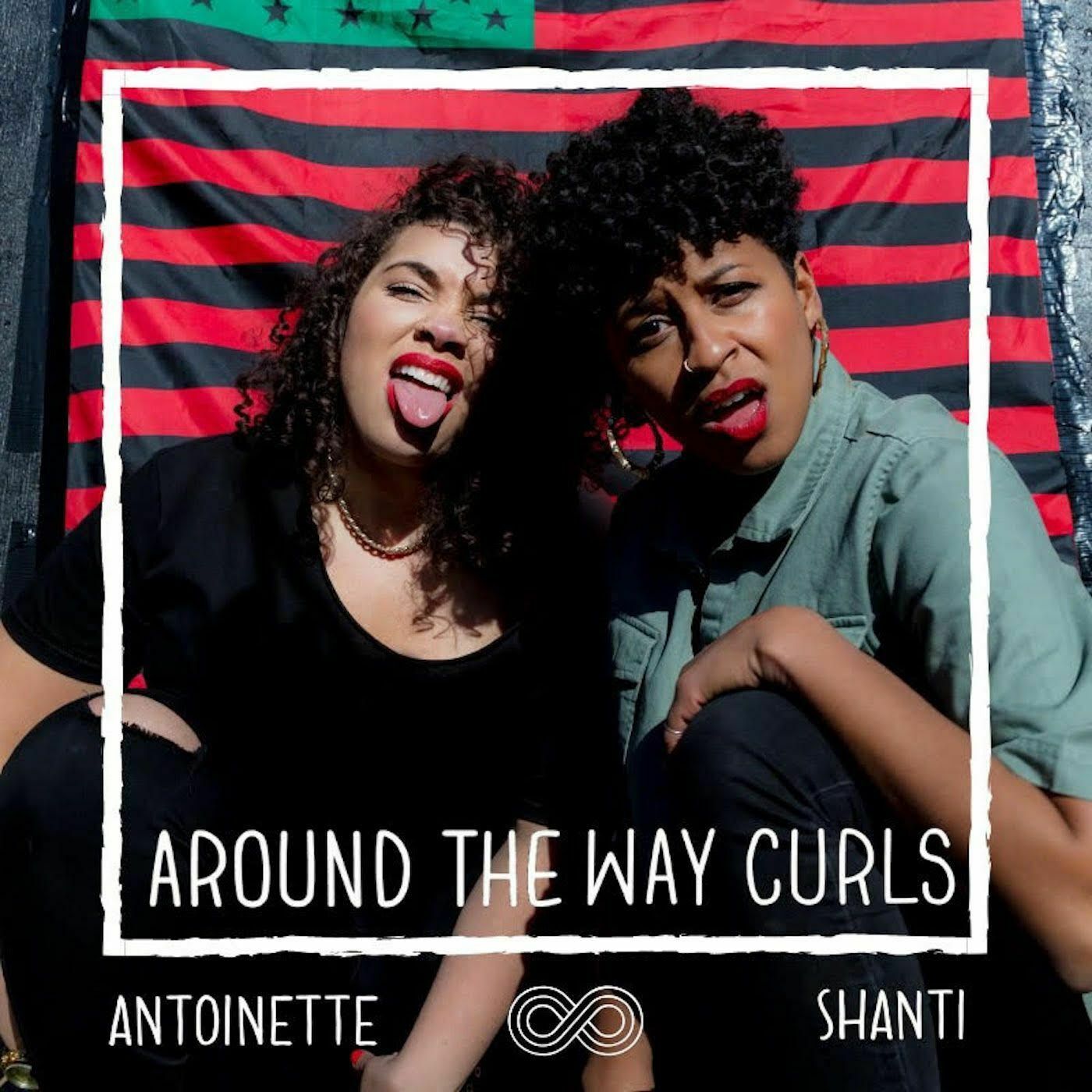
Around The Way Curls
Antoinette Lee & Shanti Mayers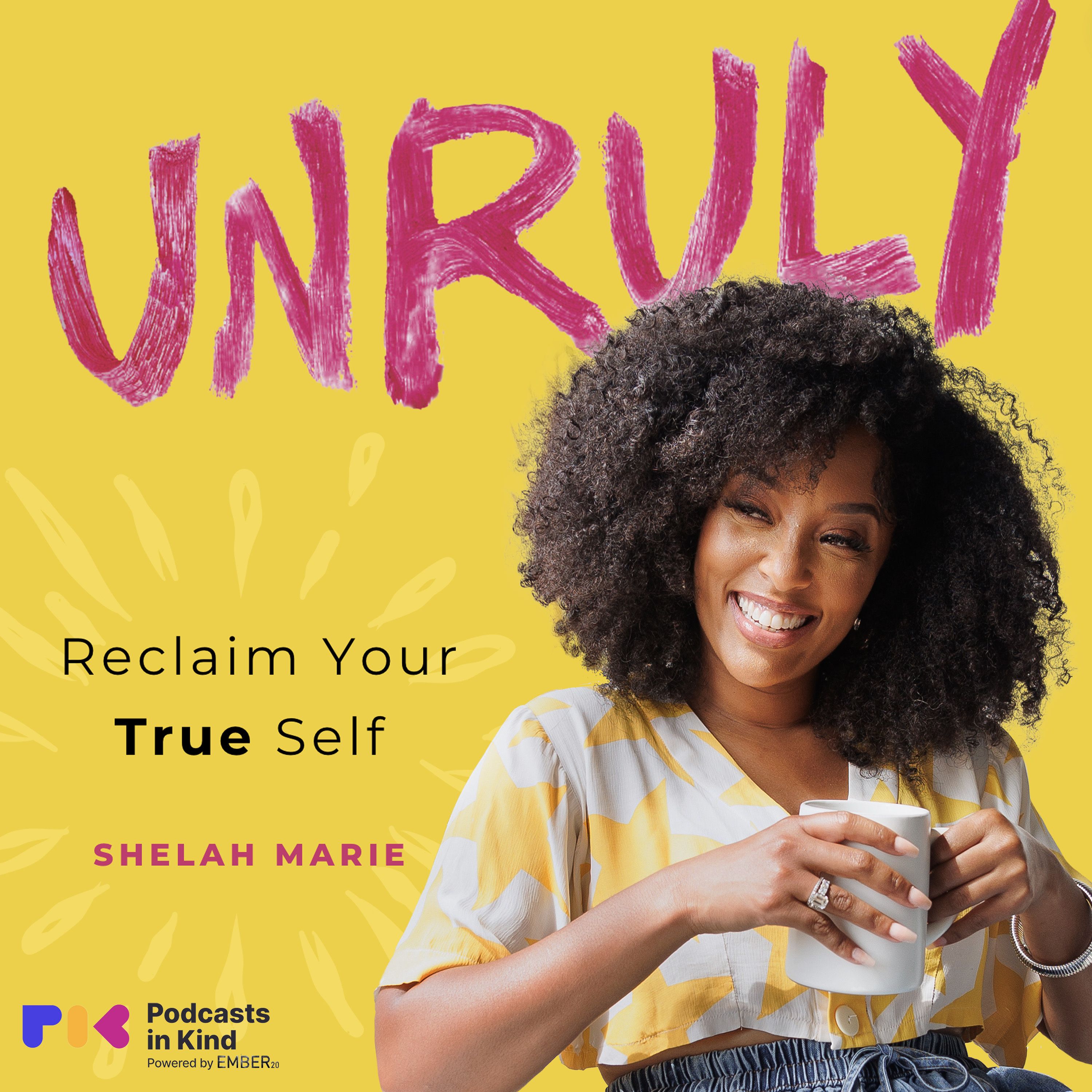
UNRULY WITH SHELAH MARIE
UNRULY WITH SHELAH MARIE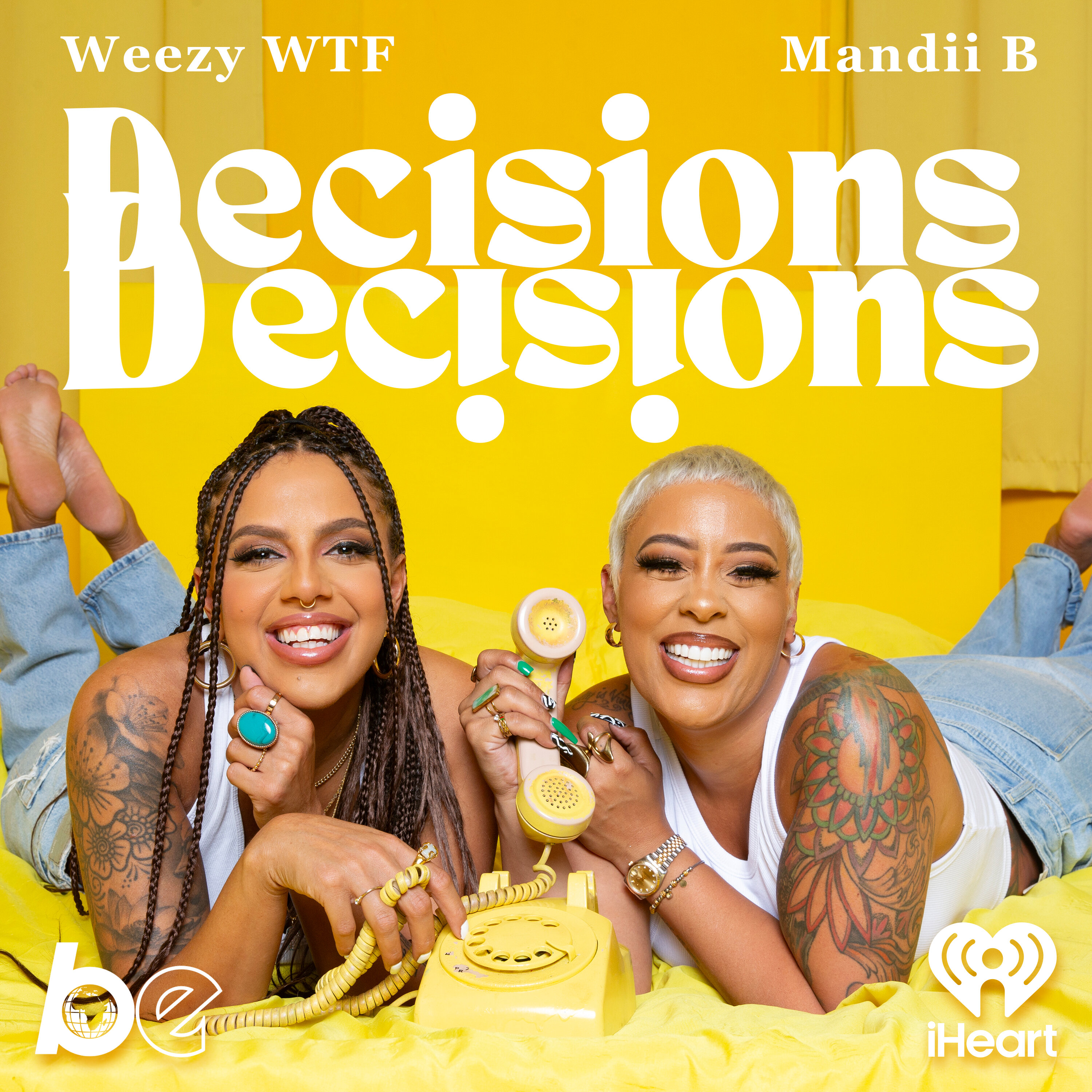
Decisions, Decisions
The Black Effect and iHeartPodcasts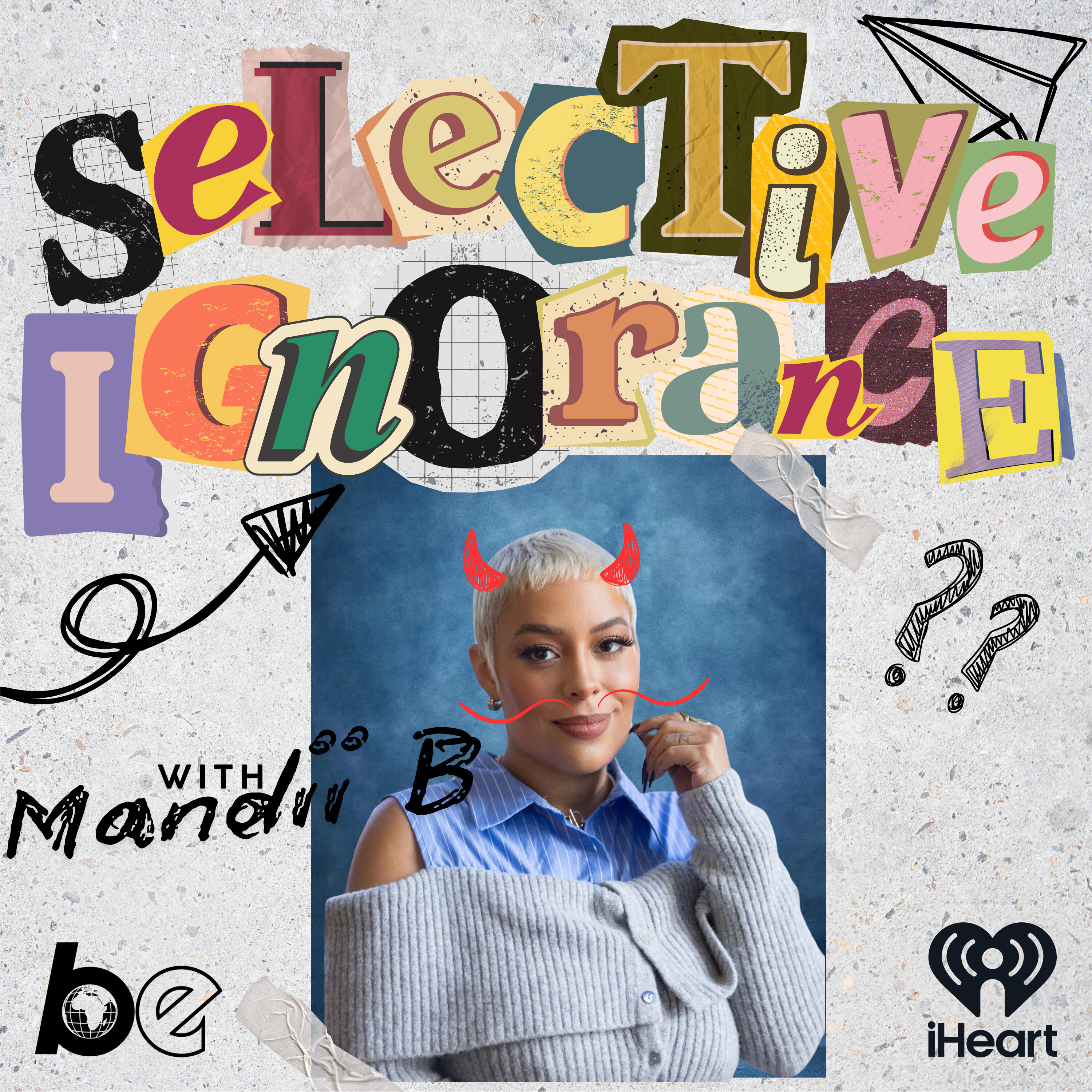
Selective Ignorance with Mandii B
The Black Effect and iHeartPodcasts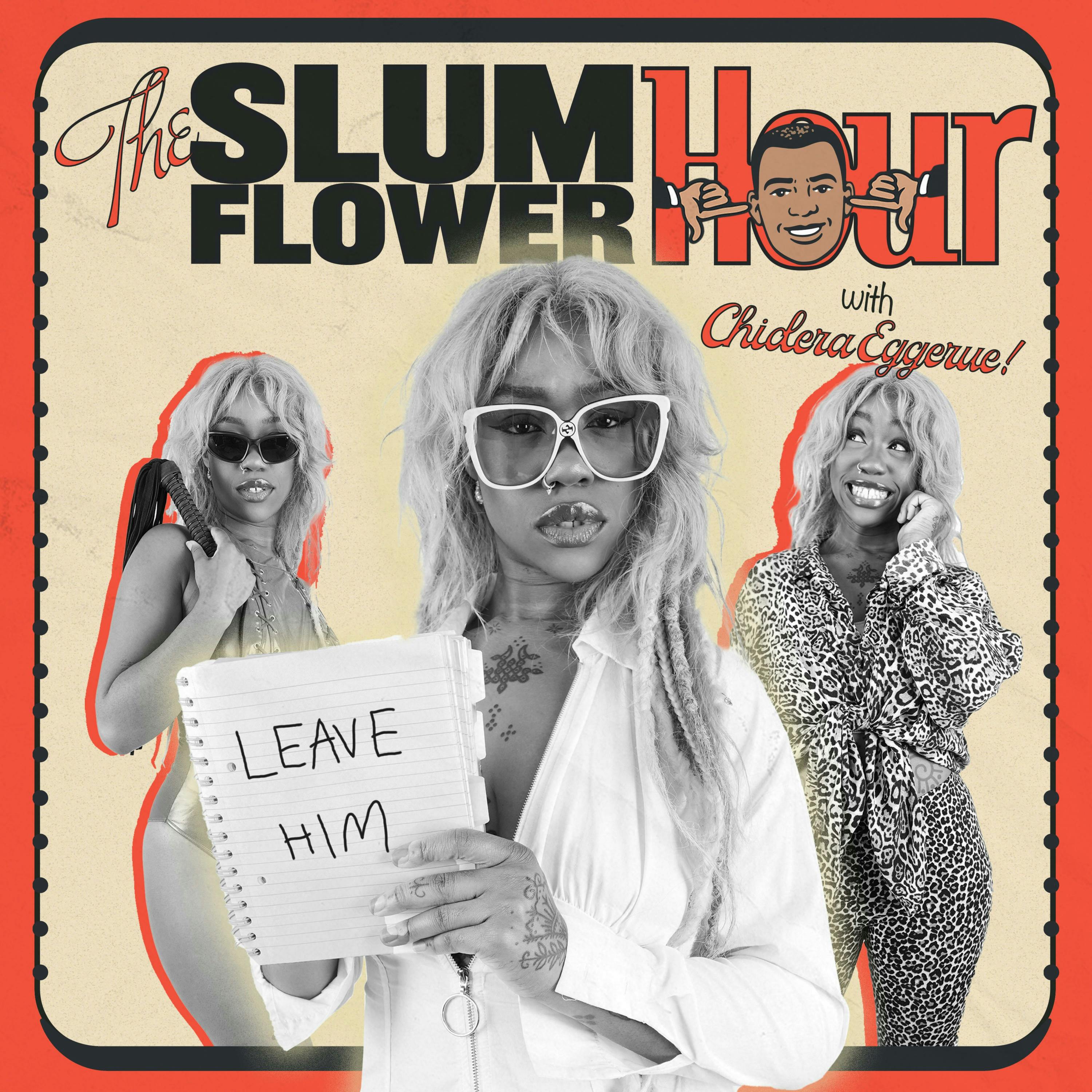
The Slumflower Hour
Chidera Eggerue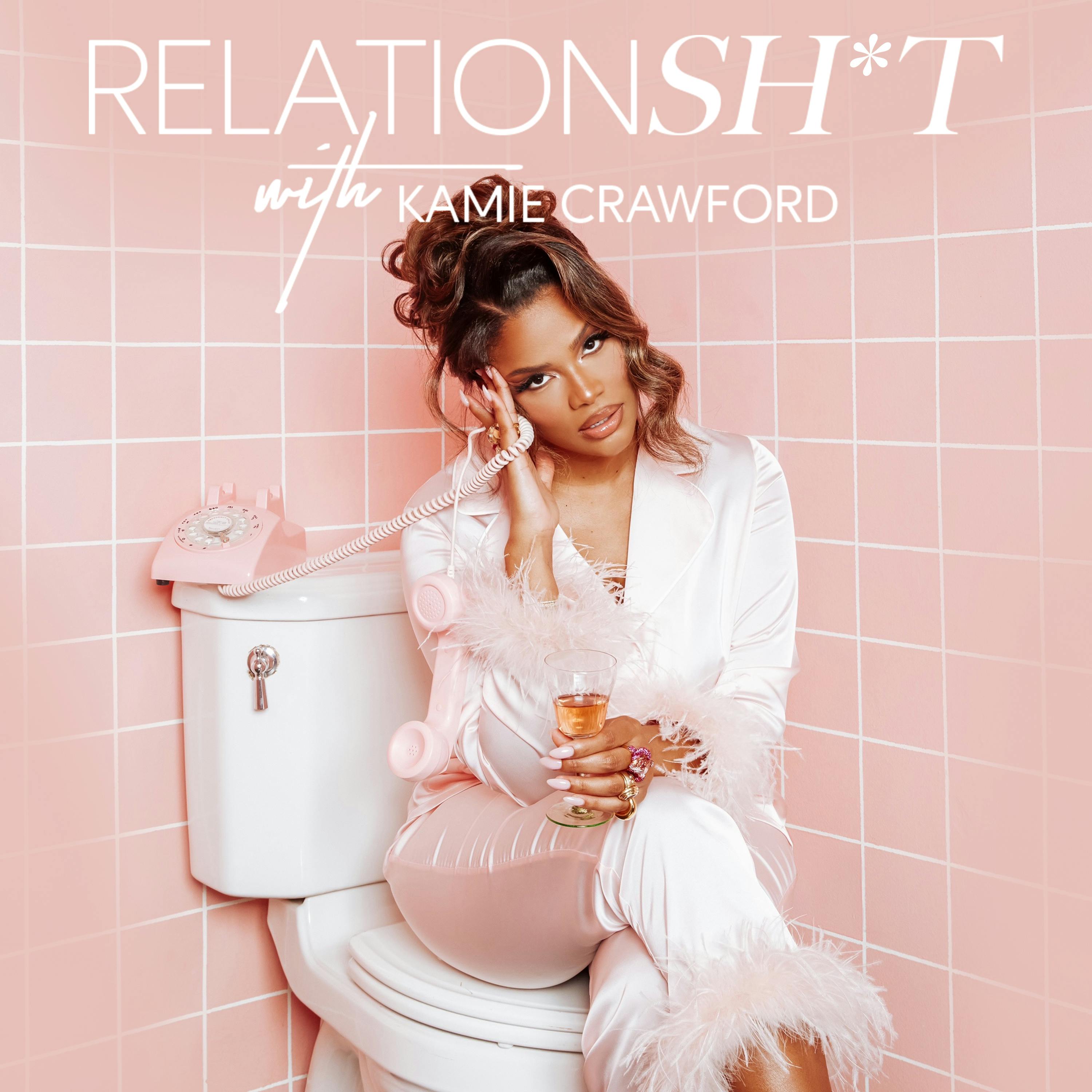
Relationsh*t with Kamie Crawford
Kamie Crawford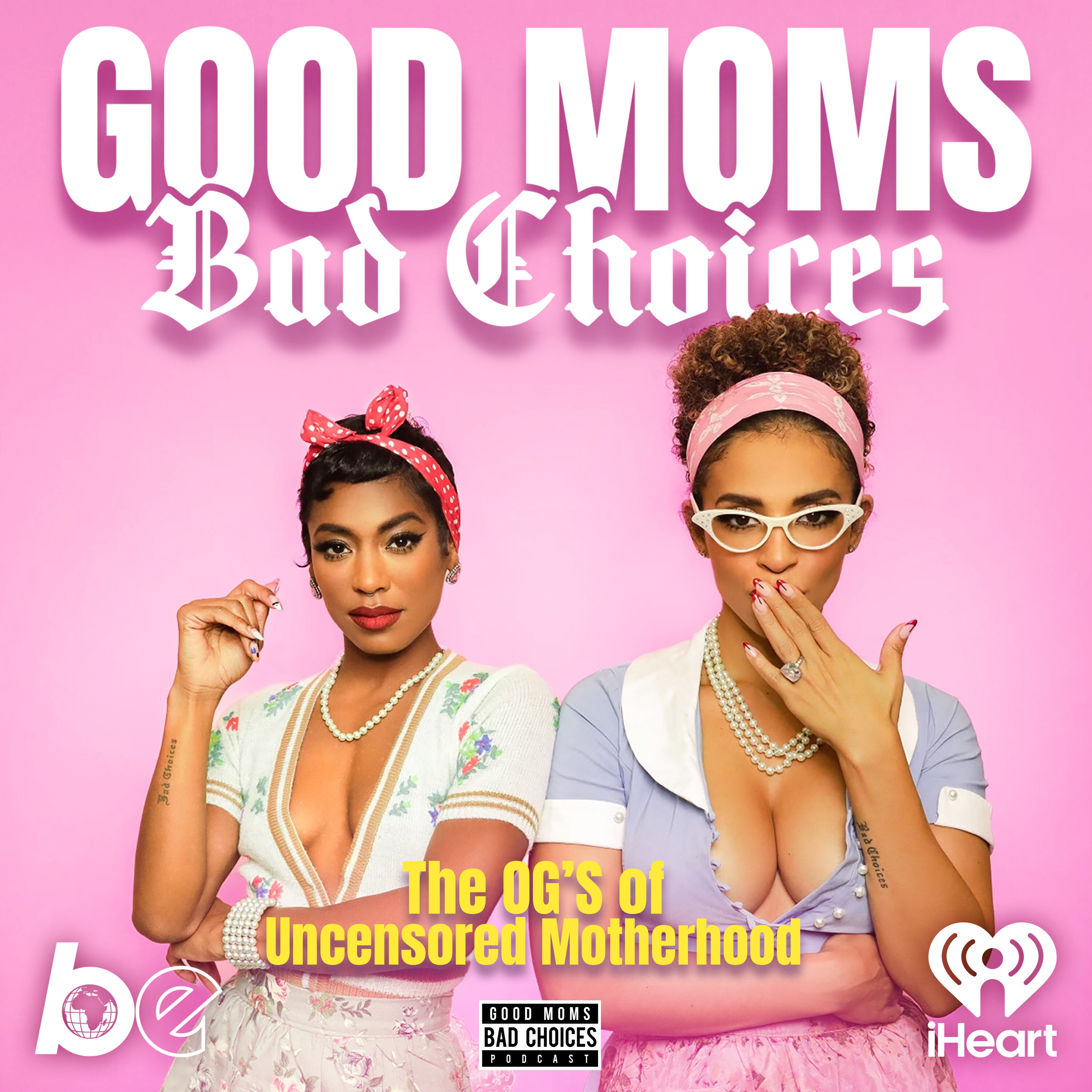
Good Moms Bad Choices
The Black Effect and iHeartPodcasts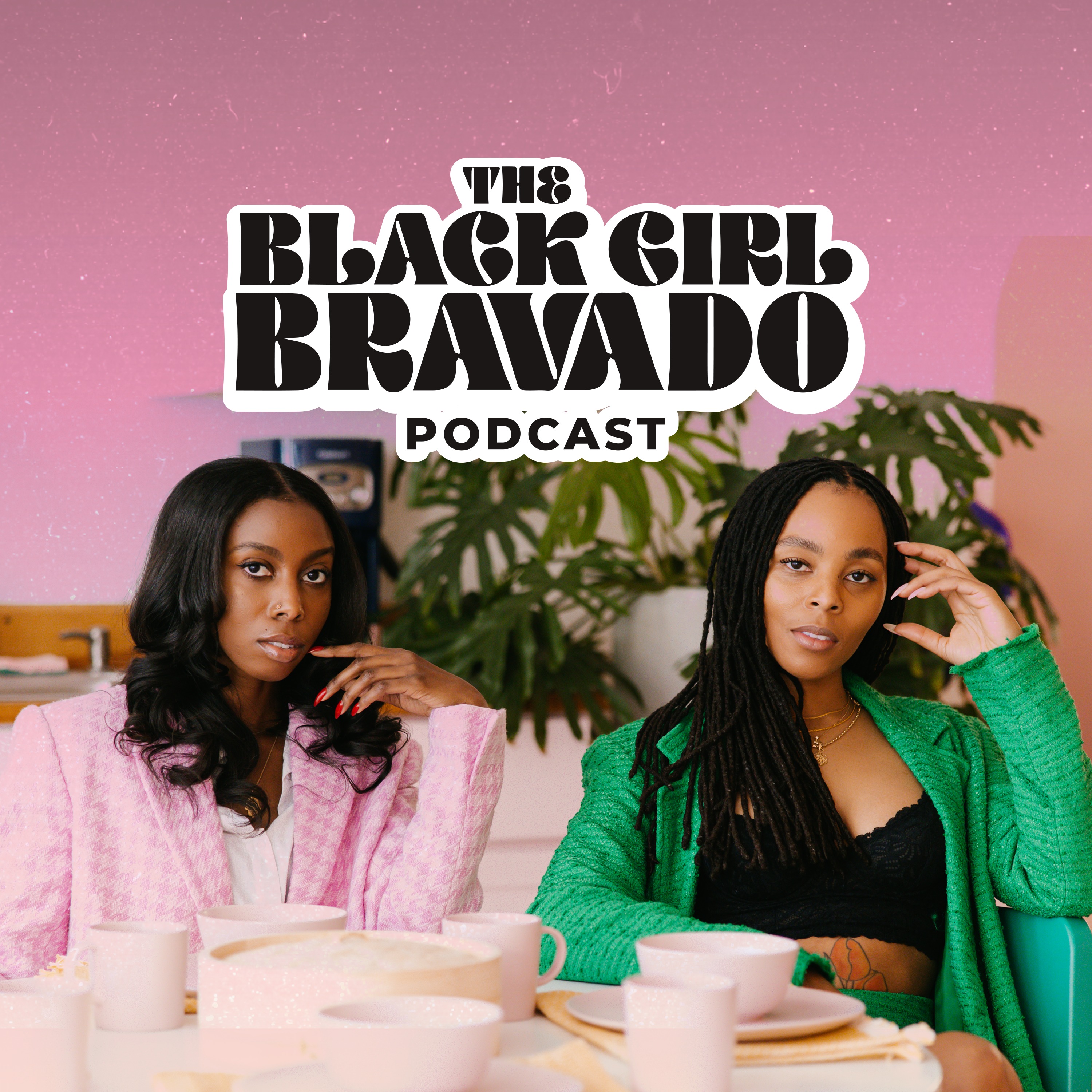
The Black Girl Bravado
Black Girl Bravado
Slay Girl Slay
Ashley Leggs
She's So Lucky
She's So Lucky
SpeakEZ Black Renaissance Podcast
Qadry Harris, M. Div.
Bobo's Void
Bobo, Donavon and MangoUpstream
Upstream
Caribbean Mystics
SpectreVision Radio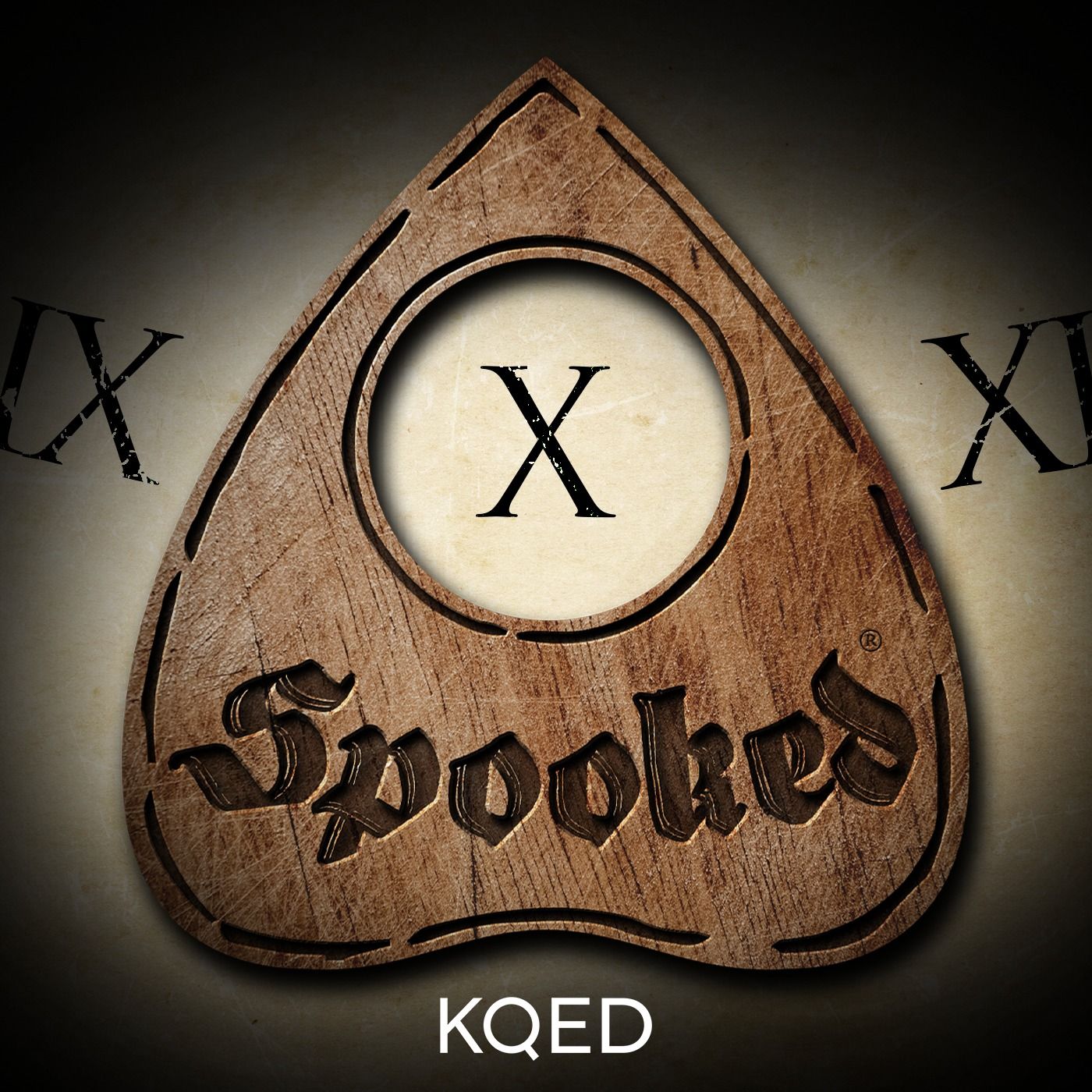
Spooked
KQED and Snap Studios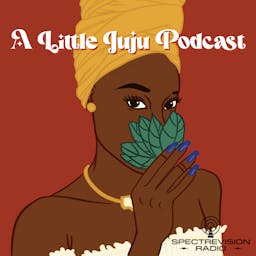
A Little Juju Podcast
SpectreVision Radio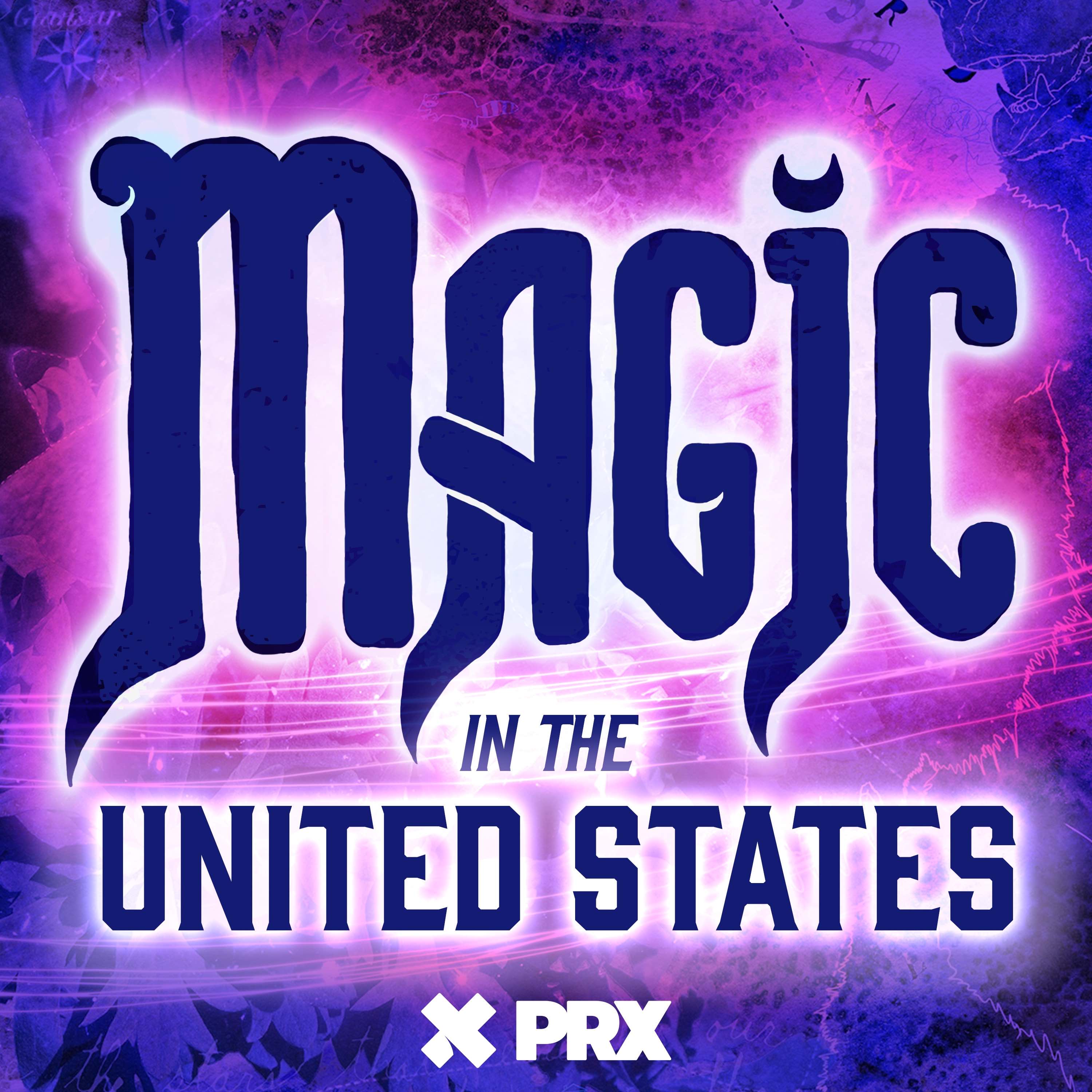
Magic in the United States
Magic in the United States
Sensual Faith Podcast with Lyvonne Briggs
Lyvonne Briggs
Our Ancestors Were Messy
Nichole Hill
CultureCon Uncut
Spotify Studios
Hold For Maintenance
Hold For Maintenance

